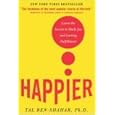 A review of 60 on Up: The Truth About Aging in America (Beacon Press, 2007), by Lillian B. Rubin, Ph.D.
A review of 60 on Up: The Truth About Aging in America (Beacon Press, 2007), by Lillian B. Rubin, Ph.D.Lillian B. Rubin’s new book begins with the sentence, "Getting old sucks!" It is a beautifully written book, based on interviews and personal experience, debunking many of the myths of aging promoted by so many today. This book should be "must" reading for everyone over 50 and for all those who study us, advertise to us, and oversee our care.
Lillian B. Rubin is an 83-year-old psychologist and sociologist who tells it like it is when it comes to growing old. The only problem I see with the book is that, like bitter medicine, it is a bit hard to take. As a reader about to turn 75, I see the truth in everything Rubin says, and am impressed by her fair-mindedness and scientific efforts to look at all sides of each question. Still, even for the generally (or formerly) scholarly and serious me, it is a bit hard to deliberately plunge into reality when I could be escaping into televised baseball or reading or writing fiction.
However, it’s a short book (184 pages, including acknowledgments and end notes), and for me, the plunge was worthwhile. Don’t look at this book as light pleasure reading, but look at it as a source of straightforward information on the aging process from one who has both research data and first-hand knowledge of that process.
I was tempted to include quotations from nearly every page, so here are just a few points I found especially interesting. From the first chapter: "Our revulsion with aging, our flight from it at almost any cost, is deeply ingrained . . . . What do you think when you look in the mirror and see the signs of your own aging? . . . Do you want to turn away, rush off to the nearest cosmetics counter and buy up every cream that promises to remove the lines . . . run to the gym . . . call a plastic surgeon?" We want the outside to match the inside, according to Rubin; we are frantic to turn back the clock. Perhaps we can for a while, but as we live longer, that usually becomes a futile effort. We now tend to live in that uncomfortable place called old age for a long time.
Dr. Rubin quotes geriatrician Kate Scannell, who says, "We are regularly consumed with commercial messages that promote an experience of aging that is far more possible on billboards than in the three-dimensional lives of most elderly people. . . .Our culture’s compulsive spinning of old age into gold can inflict psycho-spiritual harm when it lures people into expecting a perpetually gilded existence."
Rubin goes far beyond self-image to discuss our roles in society and the ways our society attempts to classify older people. Sometimes it’s the "young old" (65 to 74), the "old old" (75 to 84), and the "oldest old" (85 and older). (Of course the idea that I’m moving into the "old old" category in less than two weeks distresses me a bit.) Some use "middle old," "third age," and/or "fourth age." It seems to Rubin–and to me–that fixed categories all have their weaknesses; there are many individual differences.
Still, many of us share certain problems: outliving our savings or pensions, losing social connections, having to care for even older parents when we ourselves are old, spending our children’s intended inheritances, and many more. Dr. Rubin’s interview subjects freely discussed all of these matters. The book even includes a chapter entitled "It’s Better Than the Alternative, Isn’t It?" The answer is "Yes, but . . ." Is it always wise to prolong a life of intense suffering long after all hope is gone? Our inclination is to cling to life as long as possible, no matter what.
Lillian Rubin quotes the Dylan Thomas poem she originally planned to make the epigram of her book:
Do not go gentle into that good night,
Old age should burn and rave at close of day;
Rage, rage against the dying of the light.
However, in writing this book, she learned that "It’s one thing to ‘burn and rave’ at old age and another to do so ‘against the dying light.’" She came to understand "How much our fight against the ‘good night’ costs, how our fear of death imprisons us . . . and contaminates our life, how our denial of it closes us off from the full affirmation of the life we could be living." Strangely enough, the author found that even the deeply religious fear death and take heroic measures to postpone the inevitable.
Dr. Rubin believes that "the growing belief (myth?) that aging is a disease rather than a natural consequence of living has generated a steady stream of ‘good advice’ about how we can beat back the clock, leaving us confused about what’s possible and anxious about what we’re doing ‘wrong’"when we fail.
She favors staying active and engaged as long as possible, but points out that health issues and societal restrictions eventually put an end to that strategy. Even those happy, active seniors living in retirement communities often reach a point when they need to slow down and relax. The earlier years of retirement may be golden, but for many who live to be "old old" or "oldest old," life may become less than golden. As life expectancy increases, more and more of us are likely to reach those stages.
This a book those of us readers over 70 are likely to react to with, "That’s so true!" while baby boomer readers may shrug and continue to look for ways to escape aging. More importantly, perhaps younger readers who study us and care for us will learn the folly of making hasty generalizations about aging. Dr. Rubin does not have all the answers, and neither do I, but this is a valuable book that describes old age as it is. We all need to pay attention.
Copyright 2007 by Marlys Marshall Styne

























